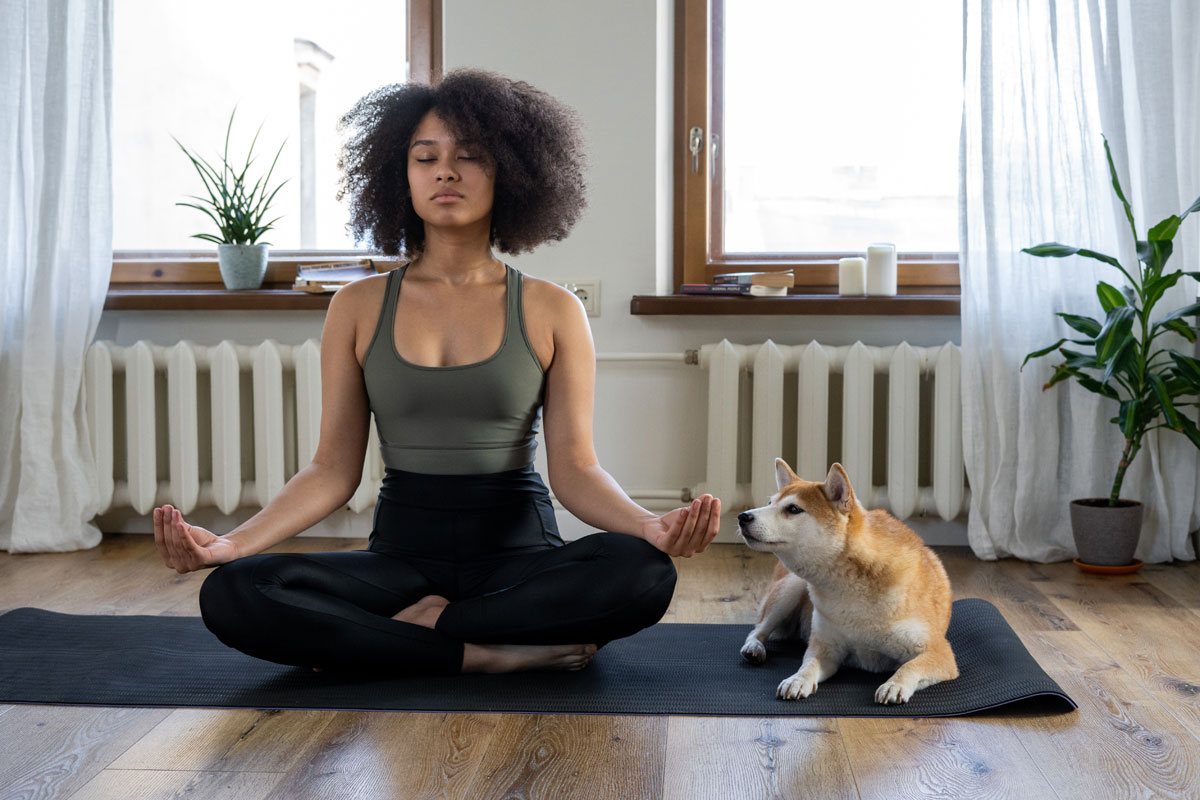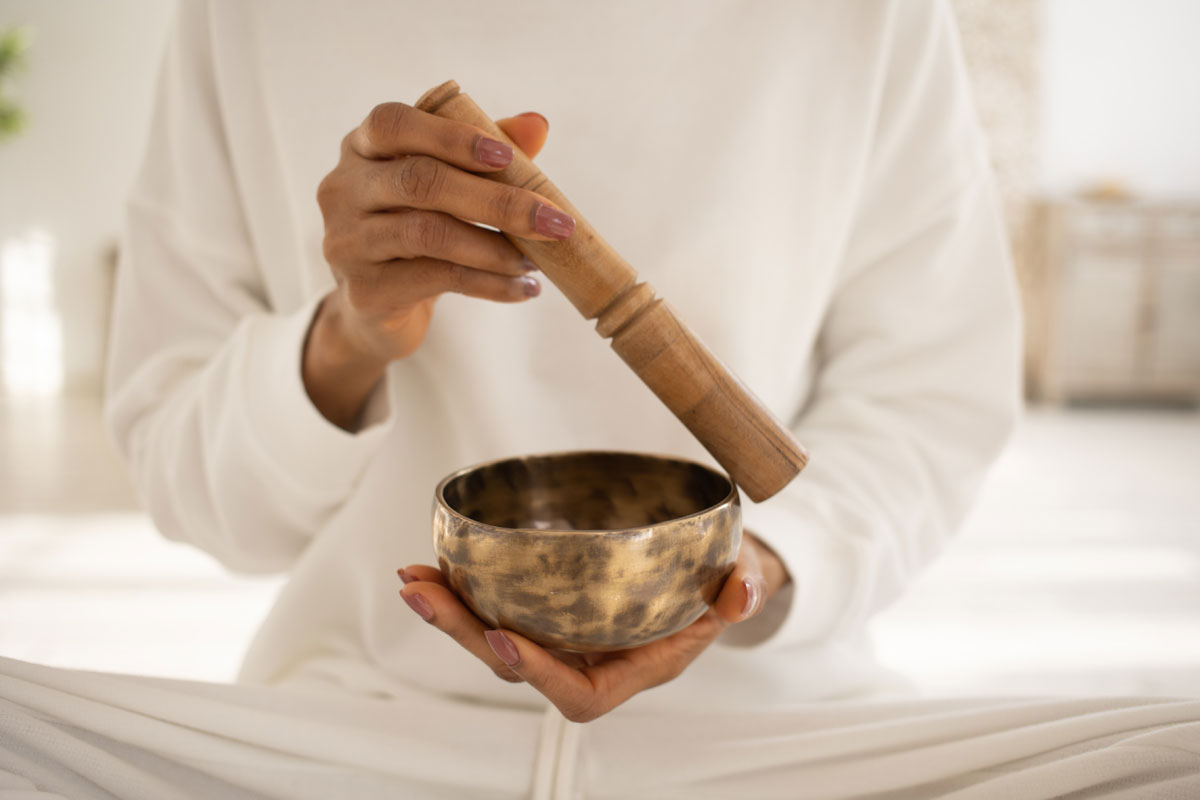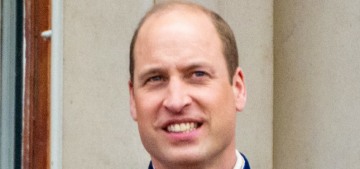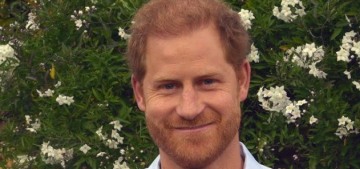
This news came out a little while ago but I’m just hearing about it and wanted to talk about it. A study published in the Psychiatry Journal of the American Medical Association found that an eight week mindfulness meditation course was as effective as the anti-anxiety drug escitalopram, which is better known as Lexapro, at reducing anxiety. Over 270 people were assigned to either a starter dose of Lexapro or a mindfulness course with 45 minutes of meditation at home a day. Both groups reduced their symptoms by about 20%. Experts quoted by NPR as well as the study’s author, Dr. Elizabeth Hoge, warn against replacing prescription meds with meditation and say that it should be considered as another mode of treatment.
Meditation is a well known method of calming anxiety, but now there’s new evidence showing it to be effective at managing anxiety.
For the first time, scientists compared patients who took an intensive eight-week mindfulness meditation program to patients who took escitalopram, the generic name of the widely-prescribed and well-studied anxiety drug Lexapro. They found that both interventions worked equally well in reducing debilitating anxiety symptoms. (Talk therapy, another effective treatment for anxiety for some people, was not addressed in this study.)
The study was published in JAMA Psychiatry on Wednesday, and the research began long before the COVID-19 pandemic struck, when it could still be conducted in person.
Researchers took 276 adults diagnosed with untreated anxiety disorders such as generalized anxiety, panic disorder, or social anxiety, and split them into two randomized groups. One group received a 10 to 20 mg daily dose of Lexapro – a standard beginning dose.
The other half was assigned to weekly two-and-a-half hour mindfulness classes at a local clinic — using an approach called Mindfulness-Based Stress Reduction — plus 45 minutes of daily meditation homework for eight weeks, as well as a day-long retreat around week five or six.
The study participants who took the drugs and those who participated in the meditation program were evaluated at the end of eight weeks using the same clinical scale, and both groups showed about a 20% reduction in the severity of their symptoms.
“The fact that we found them to be equal is amazing because now that opens up a whole new potential type of treatment,” says study author Elizabeth Hoge, director of the Anxiety Disorders Research Program at Georgetown University Medical Center.
Hoge notes that she’s not suggesting that meditation replace escitalopram — she herself prescribes the drug regularly to her anxiety patients. She says her intent is to add new treatment options, and ultimately, provide evidence that would get insurance companies to cover mindfulness-based interventions for anxiety.
NPR goes on to report that people in the Lexapro group were much more likely to still be complying with treatment after six months, with 52% of participants in the Lexapro group still taking their meds and just 28% of people in the meditation group practicing daily. That makes sense as it’s so much easier to take a pill than to set aside the time to meditate. I’m reporting on this to hold myself accountable actually, as I paid to learn transcendental meditation (it was worth the cost) but have to force myself to do it just once a day. It helps so much but it’s hard just to set aside 20 minutes for it. Like the people in the study practicing mindfullness, you’re supposed to do it twice a day at over 40 minutes! I only did the full two sessions during the initial training sessions of less than a week. I’ve been having anxiety due to menopause symptoms and I’ve really noticed a difference when I meditate. (Also when I cut back on caffeine, but screw that.)
If you’re interested in learning more about meditation, I included some of my favorite guided meditations in this post. Guided meditations really helped me to start meditating. So many people are hard on themselves and think their minds should be blank when they meditate. TM teaches that thoughts are a natural part of meditation, and it sounds like this mindfulness process is similar. Whatever you do to meditate, it can help.
This tweet hit close to home! I will jump around to exercise anytime but doing yoga and stretching aren’t priorities at all.
horrible news. been starting my days with 20-30 min of light yoga and unfortunately it really makes a difference, mentally and physically. i’m so sorry
— Sydney Battle (@SydneyBattle) November 15, 2022
photos credit: Cottonbro, Daniel Torobekov, Ekaterina Bolovtsova on Pexels













I use mostly guided meditations from insight timer app and has been a huge help. I now go to sleep with a guided meditation every night.
Same! Love my guided sleep meditations.
What kind of headphones do you use? I like my Bose noise canceling ones but I can’t move your head too much or sleep on my side without them being really uncomfortable. I’ve always wanted to try something else but I’ve never really come across anything that looked that good.
Interesting article. I started Lexapro earlier this year and it has made such a positive difference for me, I’m annoyed that I didn’t start medication sooner (I’m early 40s). I’ve tried everything else possible to manage my mental health including TM but I would always lose motivation eventually.
L-Theanine is an amino acid that is supposed to help anxiety or depression. 100 to 200 mg a day.
For me what kept it consistent is focusing less on how long and just sitting my ass on that cushion. When I was working it was right before I left the house, which meant waking up 15min earlier. Some days was 20min, some 15, other 10 or 8min. But it is about the habit for me.
At this point, I definitely feel it when I haven’t taken a moment to be with my self. Even taking a few minutes to consciously breathe is helpful.
That’s what works for me, making it part of my daily morning routine. Every morning I stretch, do yoga & some mindfulness-based breathing, plus take my daily Zoloft. It’s all helped enormously.
Can I just say a word of warning about meditation, which others on here are probably aware of already. Some people who take anti-anxiety medication do so because their anxiety stems from terrible life experiences in their past. I was told by a clinician a few years back that meditation can actually cause people to go into a state of mindlessness that blows the neurological lids off these experiences, which the brain has blocked off on purpose as a protective measure. She told me that meditation is not something to be undertaken lightly by some anxiety sufferers and that a really good professional should work with them as an expert guide.
The same can be true about grieving and meditation. Proceed with care.
I can see that, Neena Zee. Brains can be like pandora’s box and unleash all kinds of sadness and repeat anxiety when opened in a hurry, if at all. I read of a case of deep mindfulness bringing on a psychotic episode because past memories came up and overloaded the person involved. Sometimes the brain likes to be on low level alert to protect its owner.
Yeah, I am sure if I had 40 minutes a day to do meditation in a quiet private space with no interruptions, Id be a calmer person too. I don’t even get to use the bathroom without a crisis. I didn’t even type this without a crisis, lol
(this isn’t to say that clinical anxiety is not a real disorder or to say that anxiety is not any different from normal stress. I just find the advice funny, like when your washing machine breaks and a rich friend says, Just buy a new one! OF COURSE allowing someone time and space to retreat within themselves is beneficial).
That made me smile. Yes, it’s like when the kids used to follow me around the house and I could never even go for a wee in private. They’d hunt me down like a pack and bash on the bathroom door. And, no, I didn’t read your comment as flippant. I have family members with anxiety and it didn’t come across as too casual or anything.
Sadly, a lot of people would rather take a pill than invest 45 minutes in their wellbeing.
Some people have to take pills or they don’t function, that’s me with my many affect disorders.
It has absolutely nothing to do with investing in my wellbeing.
So quit shaming people that have to take medication.
Two of the meds I take are Prozac and Wellbutrin.
Wow. Would you tell a diabetic to not take insulin because it’s the lazy way out? Obviously you’ve never experienced GAD or clinical depression. Lucky you. There is a vast difference between being temporarily “stressed out” and your brain being physically incapable of making the chemicals you need to keep from spiraling into a pit of despair or anxiety.
I have spent my life managing various levels of stress and anxiety. Self care and channeling the stress into action worked for years, but there came a point where nothing helped and I was miserable and verging on not being able to function. Luckily, my GP suggested Lexapro and it was miraculous for me. It was a little rocky until it built up in my system, but once it did I couldn’t believe the difference. I struggled for years because I didn’t want to admit I couldn’t cope without medication.
Agree, Dara and Kkat. There is this idea that people on medication simply don’t understand that they’re being made a fool of by ‘big pharma’, and it’s so free and easy to fix problems if they would just eat right, calm down, sleep well. But for some people with mental health and anxiety issues, they’ve gone down the non medicated path and it doesn’t work. And they can end up feeling like failures for not being able to sort it out ‘naturally’ and using medication instead.
Ladies, I never meant to imply that people shouldn’t take medication when they need it! No “big pharma” conspiracies here or shaming of people who need drugs of any type.
I am saying that many people prefer a quick fix.
I completely believe this. Meditation isn’t for me, but I go on a short bird-watching hike every day and it’s helped my anxiety SO MUCH. It’s just three or four miles but sometimes takes as long as four hours, because I’m constantly stopping to notice things and be mindful: an interesting pattern in the tree bark, a fossil, a feather. I live alone and work from home… and am still not going to stores / restaurants due to the pandemic or socializing outside of my small pod. Going outside reminds me that there’s a world out there that’s much bigger than any of my worries. And it reminds me that I’m as real as that tree or that eagle, which is comforting when anxiety makes me feel like I’m floating away.
I love listening to birds! Mornings & evenings, when they’re most active and vocal. And yes, it’s so calming!
These studies are well meaning, but they play into the hands of mental illness deniers. When I took a positive psychiatry class, the professor told us if we felt overly depressed or anxious to take 30 days and do the recommended self care – good sleep, 30 minutes of exercise, 3 servings of vegetables – and if you don’t feel better, be prepared to escalate. Keeping notes on your 30 days will be very useful for whoever you go to for help. If you weren’t able to complete this task, also time to escalate, not beat yourself up over being unworthy of help.
I agree. There was a brilliant article in The Guardian about how wellness trends, inc Mindfulness, for mental health issues have thrown things back into the hands of sufferers, who in turn feel even worse about themselves and like they’re at fault when this stuff don’t work. It’s all part of making individuals feel responsible for things that society, and in this case health care providers, should be tackling as a collective. Mixing a bit of meditation with good diet advice and get out more isn’t always a fix all by any means.
Not surprised. I’ve been doing guided YouTube meditations a few times a week (maybe 15 or 20 min) and try to do some yoga practice daily and it really helps my mental health. I have two young kids (including a baby) and really struggle sometimes with feeling frustrated and upset and those mindful practices seriously change my life. The more consistent I am, the better ever everything is – sleep, attitude, etc.
True story. I took Effexor and Lamictal for 17 years to manage depression and anxiety. There is a place for medication and clinical therapy and I respect them, feel grateful I had access to them, and they perhaps saved my life at one point. I don’t think anyone should ever feel stigma about getting help they need when they need it, and those things can definitely help.
That said, after a while I realized I wasn’t making much progress anymore (17 years is a long time) and then the pandemic and ensuing confinements pushed me into panic-attack high gear, despite ongoing meds and therapy treatment. In a way, the sense of personal crisis brought on by the pandemic helped me make a massive breakthrough, because I had never put much time or effort into trying to meditate, despite constantly being told that it could help. I think I became desperate enough that I was more open to an alternative approach. I came across the Fitmind app, which sort of holds your hand in a mellow, science-y kinda way as you explore different kinds of meditation through its guided approach, and had a major breakthrough after about two weeks. Haven’t had a panic attack since. Something about the regular meditation ‘healed’ my brain in a permanent way, which I can’t say for the meds. It was truly profound for me. Hugs & support to all of current and former anxiety sufferers <3 With patience and kindness to oneself, things can get better.
I love meditation and use it as a coping tool all the time to help with my anxiety (not 45 mins a day though – that just isn’t practical in my life). That being said, lexapro has been a life changer for me and I have no shame in using it. I will continue to do so until it either stops being effective or until my doctor recommend a change because im not willing to chance going back to feeling the way I did prior to starting it.
❤️ 🖖